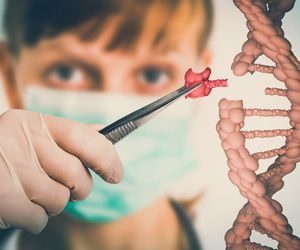Hereditary neuropathies refer to a group of nerve disorders that lead to weakness and wasting of the muscles generally below the knees, and in the hands, and that may be passed from parents to children. For several of these conditions, the genetic defect is known, and tests are available for diagnosis and prenatal counseling.
Q&A with Sami Khella, MD and Shawna Feely, MS, LGC
In October 2022, the Foundation for Peripheral Neuropathy (FPN) welcomed Sami Khella, MD, of Penn Presbyterian Medical Center, and Shawna Feely, MS, LGC, of the University of Iowa Hospitals and Clinics, for a program on hereditary neuropathies and the benefits of genetic testing. During this one-hour webinar, our experts addressed the problems of misdiagnoses and the benefits of getting genetic testing early on, to lead patients down the right path for treatment. The program also addressed the value of genetic counseling for families that are impacted by hereditary diseases.
Following the program, Lindsay Colbert, Executive Director of FPN, sat down with Dr. Khella and Ms. Feely to ask some questions that were not addressed during the program:
FPN: If a direct cause of neuropathy cannot be found, would you suggest that the likelihood of one’s neuropathy would be hereditary?
Dr. Khella: No, sometimes a direct cause of neuropathy is hard to identify and oftentimes is categorized as idiopathic. A hereditary neuropathy should only be diagnosed if genetic testing was performed.
Shawna Feely: We do not know all the genetic causes of neuropathy yet, so there are folks that test negative after having genetic testing but may still have a genetic cause to their symptoms. There are clues we look for to diagnose genetic neuropathy, family history being one of those. Essentially, negative genetic testing does not rule out the possibility of having a genetic neuropathy.
FPN: In your experience, have your patients with hereditary PN been able to manage their symptoms through lifestyle changes (e.g., diet and exercise)?
Dr. Khella: Sometimes, yes. Every patient is different, and their treatment plan follows suit.
FPN: For a tissue biopsy for amyloidosis, what tissue is tested and what’s the exact name of this tissue biopsy?
Dr. Khella: Many tissues can be tested including nerve, heart, fat, skin, salivary glands. You should discuss the test site with your amyloid expert to better identify what tissue should be tested and what the correlating biopsy is called.
FPN: How do you lower the TTR protein production in the liver?
Dr. Khella: Lowering the TTR protein production in one’s liver should only be done by the FDA-approved medicines. Some examples of those approved drugs include Tegsedi, Onpattro, and Amvuttra.
FPN: Can amyloid peripheral neuropathy develop from scoliosis?
Dr. Khella: No, scoliosis has not been shown to be a cause.
FPN: How is Light Chain Amyloidosis treated?
Dr. Khella: The treatment for this form is typically done with chemotherapy.
FPN: Is a nerve biopsy ever helpful for diagnosing Hereditary neuropathies?
Dr. Khella: Yes, nerve biopsies can sometimes be helpful for diagnosing hereditary forms of neuropathy.
FPN: How would a typical family counseling session go? How long do families undergo such treatment on average?
Shawna Feely: That’s a great question – I would refer you to the NSGC website at: https://www.nsgc.org/About/About-Genetic-Counselors, to find out more about genetic counseling. Typically, this is a process to help people or families understand more about their medical condition, possible genetic causes, and guidance through the genetic testing process. It is short term, for example, it may involve pre-test and then post-test discussions with a family. A family history is taken and then a discussion about pros/cons of testing options is had.
FPN: When do families know it’s a good time to see a genetic counselor?
Shawna Feely: If families may have or are at risk for a genetic disease, then a genetic counselor is a great resource.
Thank you, Dr. Khella and Ms. Feely for your time and expertise. FPN Is extremely grateful for the support you are helping to provide to patients affected by hereditary neuropathies.
